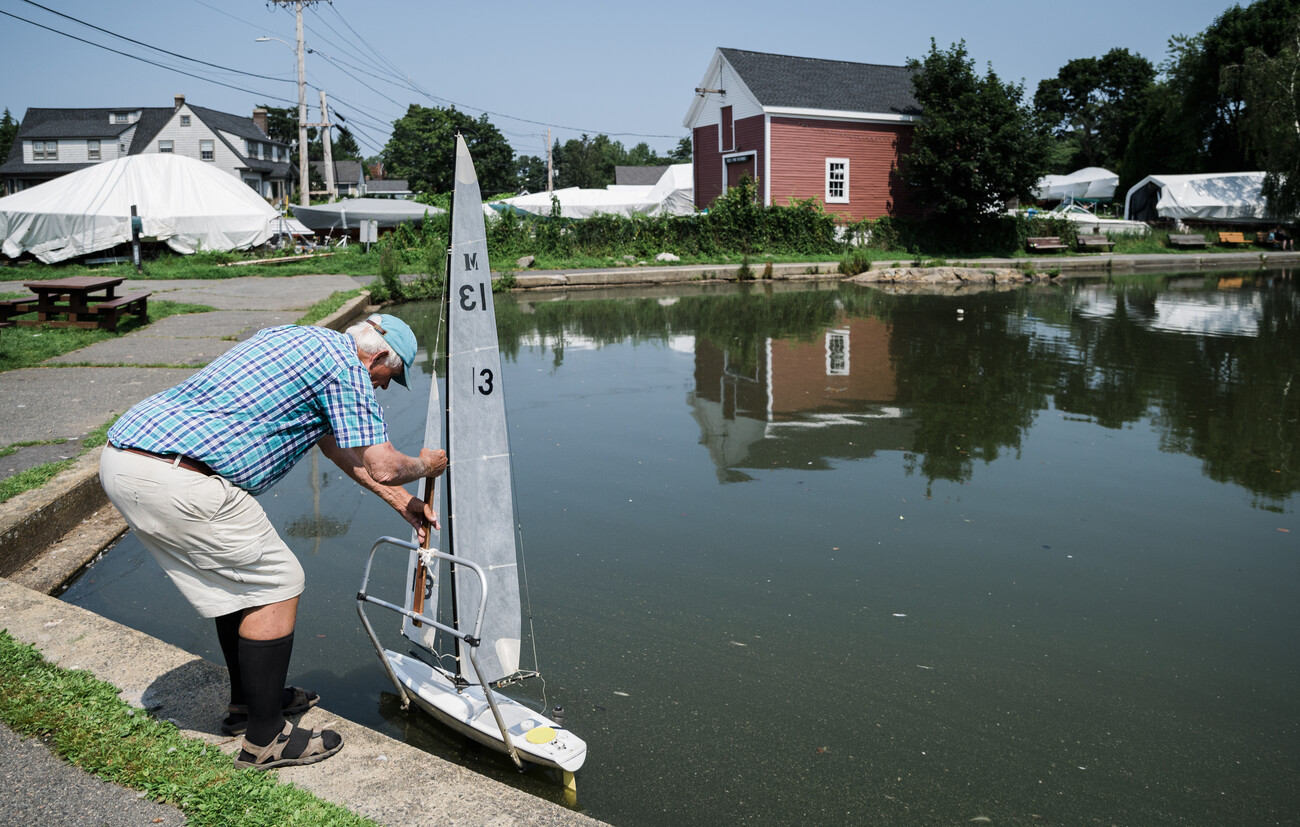At nearly 131 years old, one of the town’s most historic clubs is still alive and well.
Meeting on Saturdays and Sundays, members of the Marblehead Model Yacht Club gather at Redd’s Pond to set sail, remotely. Standing at the edge of the pond, each of the captains place their model yachts in the water.
The boats then drift toward the starting line, and the race is off.
Going at a speed of roughly 1 nautical mile per hour, the yachts have no motor, so with joysticks in hand, members can only control the boats by moving the sails with the remote control.
MMYC Commodore Biff Martin, a native Marbleheader who grew up within arms reach of Redd’s Pond, said that he has been involved with model yachts since he was old enough to play with them.
“I love doing it,” Martin said. “To me it’s a great hobby, there’s a number of thousands of people in the country that think it’s a great hobby and probably tens of thousands in the world that do it.”
The club’s history dates back to 1892, when some form of what is now the Marblehead Model Yacht Club began racing yachts at Redd’s Pond. Thirty-eight years later, MMYC member Roy Clough created the Marblehead Class, which is now used in model-yacht pond racing across the globe and was at one point the most used model in the world. Martin said that today, it is still in the top three most used globally.
The MMYC today actively races the International Marblehead Class, the CR 914, the Vintage Marblehead Class, the DF95 and DF65, and the American Marblehead Class, which Martin invented with the help of a friend.
The American Marblehead Class includes all Marblehead Class boats from 1931 to present day.
The club notes on its website, however, that all classes are welcome and if there is great interest in a class, races will be arranged for it.
Martin said that he has built many models himself and is close to finishing a number of others. He said that building a CR 914 kit will take about 30 hours. When he builds a Marblehead Class from scratch, it can take up to 75 hours because of the attention to detail that Martin gives his yachts.
“If you build it the way I do, they’re carved, rather than plank-on-plank,” Martin said.
The club begins racing in March and race days take place on Saturdays at 1 p.m. and Sundays at 10 p.m. until early November. Afterward, racing continues through the cold weather until the pond freezes over.
Though the model yachts are powered by sails, Martin said the pond is a tough place to catch wind because of the tree cover around it.
“It makes it swirly,” he said. “Everybody that did free-sail sailing here realized that if you could sail here, you could sail anywhere in the country.”
The club currently has around 40 members who participate in racing. Though numbers have been declining throughout the years, Martin said that three newcomers have joined recently. Model yacht racing, like many other hobbies, takes time and practice, but Martin said that you can catch on quickly if you take the time to watch others.
“A lot of people are hesitant to try something like this. It’s not a long (learning) curve and if you watch what other people do and steal what they’re doing, you can be very successful in a short period of time,” Martin joked.

